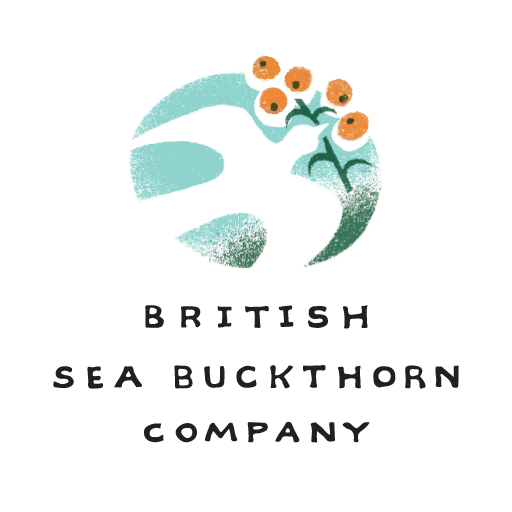The UK has always prided itself on its ingenuity, its ability to innovate, design and invent. Often all of these develop as a result of necessity. The world is always changing so standing still is not an option. This last week Ben and I went to a farm which is in environmental terms at the cutting edge of agri-environment innovation.
Just as every year we know that the weather will be different, so is the global economic climate. Change is dynamic and ignoring it is counter productive. The UK/European issue is deeper than just the referendum and as a business we need to be reviewing our options and continually assessing options that might be good for the next ten/ fifteen years.
The Knepp farm estate is based on a 3500 acre farm in Sussex. Like Devereux farm it was an arable farm. Also like Devereux it had a diary enterprise – although 600 cows rather than our 120, but that reflects the scale of the business. 15 years ago the owners assessed the profitability and work input as unsustainable. They took the unique and unprecidented step of withdrawing from conventional high input, high investment agriculture and adopting a very low input system. The system is called “re-wilding”. Over a period of years the whole estate has been fenced into large area blocks and allowed to return to nature. Traditional breeds of cattle and pigs then roam through this environment on a ranching basis, but in numbers that allow the environment to develop in a controlled manner. Traditional breeds are hardy and suited to the system. But all animals feed in different ways and on different plants. Adding deer and ponies to the cows and pigs creates a mix of grazing which has a synergy within this environment. The most amazing thing is that as the environment has developed it has attracted back species that have colonised the area. Nightingales, turtle doves and a list of rare species of national importance. The farm has then developed a glamping facility again unique to its setting. Visitors take the opportunity of trips into this re-wilding environment and it is magical.
This is an example of true innovation, but it also works hard to deliver the other holy grail of modern business – sustainability. So often this is just a marketing phrase. It is not an easy one to truely deliver and it requires real commitment. So this has become the latest inspiration to look to how we model Devereux and our other farm at Walton Hall. Sea buckthorn remains a driver but we cannot forget the rest of the farm and the spectacular environment in which it is set.
Returning to sea buckthorn finally. Last year, despite the use of kites, rockets, flashing tapes, scare crows – birds striped every last berry on our Siberian plants. The year before the problem had been weeds and disease. Each year that progresses presents and issue which we work through and find solutions for. 2016 it is the birds. So this week starts the delivery of a netting system to cover the whole site. It is second hand, having come from a cherry farm, and as the lorries arrive with poles, hoops, bins of wires and netting the task ahead of constructing it across the site looks daunting. But the birds only become a problem as the berries finally ripen, so we have time and we could not have started before now. Ground conditions are still wet, but like all projects the first and main task will be in working out how to put it up where it will not be in the way of tractor access when mowing, compost spreading and so on..
So that’s been this week – and as spring really has arrived, it has been a productive one.
. Commodity crops find a price based on sale and demand. Politics and speculation add to the mix. The fact that the EU Common Agricultural Policy distributes subsidies to farmers across member states is a reflection that the farming industry needs this support to make ends meet. The fact that dairy farmers produce milk at below cost is lunacy and is resulting in a continual shrinking of the UK dairy industry. Knepp had 600 cows. Produced milk, ice cream and dairy products. The rest of the farm was conventional arable. The sad fact was that for all the effort the farm was not profitable. 15 years ago Knepp started a process of withdrawing from this conventional farming system.
The result has been, in my view the most amazing transformation. A brave move 15 years ago that required vision. In the last 5 years sustainability has been a catch phrase. True sustainability is a holy grail, but all to often it is more a marketing phrase than a reality. Knepp have reverted their arable land – all of it, back to nature, a process they have called re-wilding. The old business involved heavy investment in machinery, in agro-chemicals, in energy. With all this goes a huge amount of management input, risk and stress. The re-wilding process removes all cultivation, and allows the land to revert to its natural state. The soil at Knepp is horrible – heavy clay with very poor drainage. They do have however a core of woodland with some wonderful woodland. So how do they now make an income? All great ideas are simple – although the process that supports it might be complex. The process involves fencing in the whole farm and introducing a mix of grazing animals – long horn cattle; tamworth pigs; deer and ponies. All of these act differently in controlling and interacting with this environment. The result is not uncontrolled reversion of land to what farms used to call rack and ruin. Each breed of livestock chosen has an inherited ability to survive in a wild environment. Low cost management is the ultimate in sustainability and what is more the environment to
